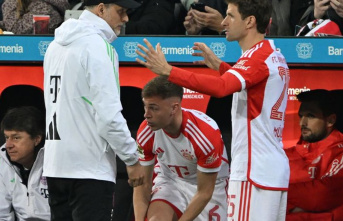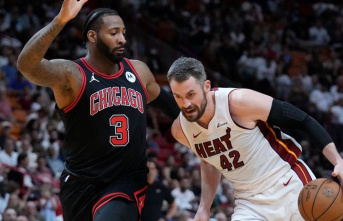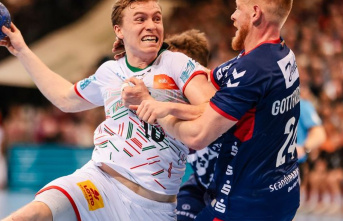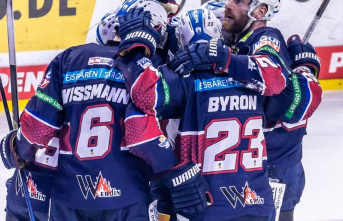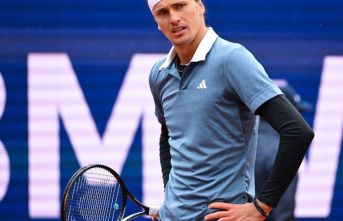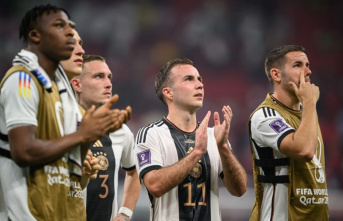A devastated Kai Havertz said after the final whistle that he hadn't expected the result of the Spaniards, but immediately added that he had to look his own way. Thomas Müller also called the outcome of the parallel game "incredibly bitter". You've done your homework and now you're out anyway. However, none of the Germans went so far as to accuse Spain of possibly having a look at the previously much-cited "easier half of the tournament" and not having been so dissatisfied with second place in the group.
Journalists then took over this confrontation afterwards. Spain's coach Luiz Enrique didn't want to hear about it. He fielded the players he thought were the best for the game. As a result, "a lot has changed in the tournament", he also admitted, and he probably meant the supposedly easier half of the tableau: Morocco in the round of 16 instead of Croatia and no threat from Brazil in the quarter-finals. But he doesn't celebrate defeats as a matter of principle, according to Enrique. As a group leader you wanted to get ahead. "We gave everything," said the Spain coach. For many observers, however, a bland aftertaste remains, especially after the second half.
In fact, Spain could not rely on progressing one way or the other from the start. In the event of a defeat against Japan, it would have been very difficult for Germany to overtake the Spaniards due to the massively worse goal difference - which ultimately didn't happen. Costa Rica, however, would have overtaken with a win. And so Spain got off to a good start, taking an early lead and creating several scoring chances against deep-lying Japanese. At the break it looked like the scores were 1-0 in both games after Spain and Germany in the round of 16.
After the break, however, the Spaniards gave up the game with gross negligence. Goalkeeper Simón, for example, didn't look good with any of the goals conceded. The whole team seemed nervous. The half-time stands, understandably, only seemed to really motivate the Asians. The 2010 World Champion hardly ever came dangerously in front of the Japanese goal in the entire second round. Bundesliga star Dani Olmo missed the only big chance to score in the 90th minute.
Meanwhile, Luis Enrique's team was eliminated by Costa Rica's lead against Germany - at least for three minutes. The coach doesn't want to have noticed that at all. "How? We were outside?" Said Enrique to a corresponding question in the press conference. "I didn't know, I was focused on the game." Otherwise he would have "got a heart attack".
At least in the last few minutes of the game, his pulse should have been quite relaxed. After Germany turned the game against Costa Rica again and ultimately led 4:2, you knew: nothing can happen to the Spaniards today. That was reflected in the final minutes on the pitch. No team took more risks. The teams seemed to come to terms with the result, as it was enough for both to progress.
What shouldn't be forgotten, of course, is that the Japanese ultimately played two good games against Germany and Spain and struck with brutal efficiency. From not even a handful of chances in both encounters, the Asians made two goals each. Germany, the world champion in wasting chances at this tournament, could only dream of that. "We had a lot of problems against Japan," said Niclas Füllkrug after the game. "That was the decisive game day."
And so in the end the sad conclusion remains: If Germany had won against Japan, they would not have been dependent on the sometimes somewhat unmotivated Spaniards on the last day of the game.


